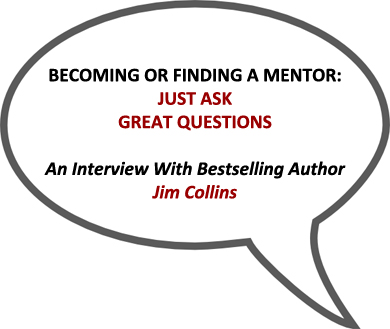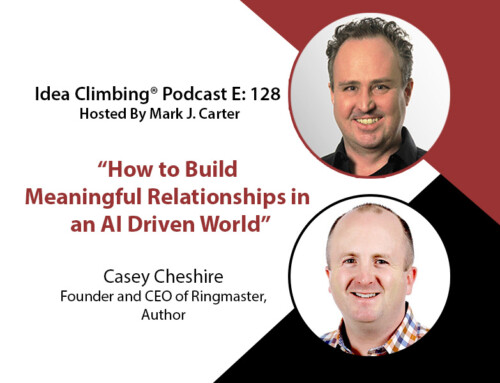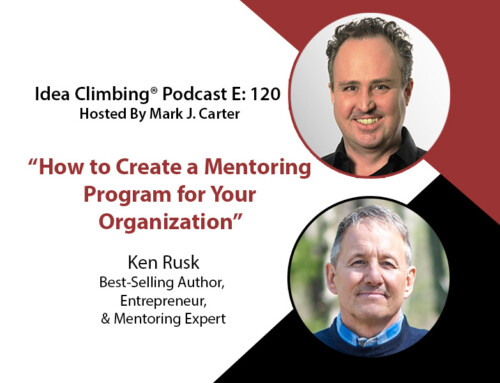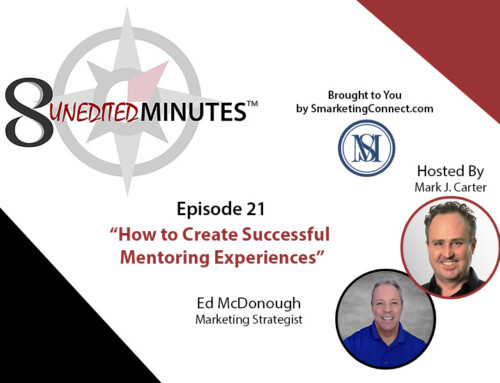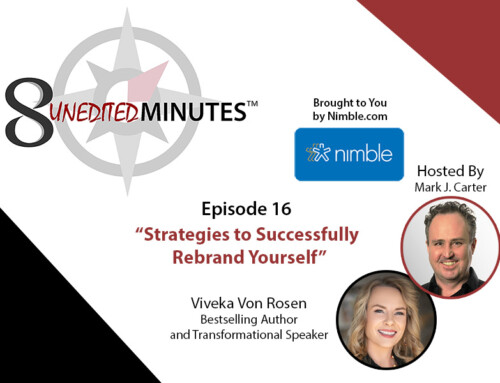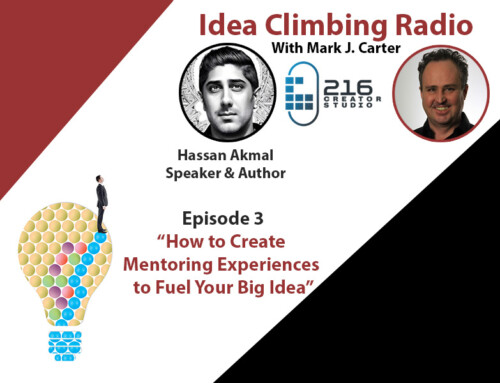That was one of international bestselling author Jim Collins’ closing statements during his amazing speech at the World Business Forum this week in New York. Being curious, I had to know more – so I found him off stage and asked him two questions. In a matter of six or seven minutes (I’m guessing on that time frame) he imparted advice that could take years for most of us to learn through simple trial and error.
I hope you find this as helpful and enlightening as I did…
MENTORS
Jim pointed out that mentors have obligations too. If they’re going to take on a mentee, they need to help get results within their (the mentor’s) available time so it’s fair to everyone.
What can people that want to be mentors do? Where can you start?
- Find 2 weaknesses within the person you’re mentoring or going to mentor. This gives you focus. Don’t get into every area of their professional lives. As a mentor you’ll need to ask the right questions to uncover these weaknesses. Then, once you find them…
- Focus on those 2 weaknesses.
- Keep them focused on improving and overcoming those 2 weaknesses. Answer their questions, provide them with resources and introduce them to connections to help them overcome those weaknesses. Set up some kind of accountability system (even if it’s as simple as “When I call you next month I’ll expect you to tell me 3 ways you’ve been working on what we talked about…”)
MENTEES
Some people might think that being a mentee is about getting advice and shortening your learning curve. It is. And moreso than with mentoring it’s a huge responsibility wrapped in amazing opportunity. Jim gave a simple starting point (that takes some guts to follow through on).
What can the mentee do to find a mentor? Where should you start?
- Ask (GOOD, or I should say GREAT) Questions. This will help you to…
- RESPECT your mentor’s time, advice and expertise which leads us to…
- When you get answers: Step up and take action.
- When you take action – take notice of your results (good, bad or otherwise). Bring these results back to your mentor with more (great) questions about your next steps.
HOW YOU CAN FIND MENTORS
From that short conversation and many of my own experiences I’d like to share with you a starting point. Something you can put into motion today.
Start with your own weaknesses. Pick two that you know (or think you know) you have. This will tell you WHY you need a mentor. Look for mentors with experience and expertise in those arenas. A name, celebrity status or a high level title aren’t the sole deciding points.
Once you know WHY you need a mentor then you know WHERE to start looking (online and offline). Where are your potential mentors active online? Their own blog? Facebook fan pages? LinkedIn groups? Twitter? (I’m intentionally working with social media platforms where you don’t need permission to interact with them, such as getting approved as a friend on Facebook or connection on LinkedIn). What events are they speaking at (or what organizations are they active in and attend the events of)?
Then you get to HOW. Jim shared that process with us: Start by asking great questions. First ask yourself great questions then ask your mentors great questions.
Who can you reach out to TODAY? What will you ask them when you meet them?
